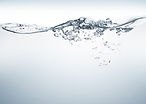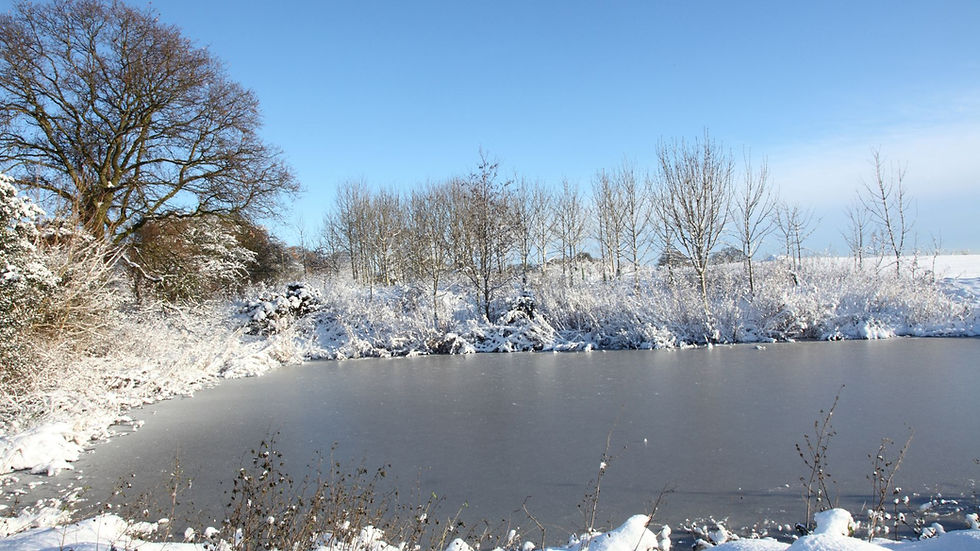Summer Pond Maintenance
- Richard Fulford

- Jul 24, 2022
- 4 min read
Updated: Oct 4, 2022

Follow our Summer Pond Maintenance Tips to preserve the appearance of your pond.
Pond care is crucial throughout the year, and it's no secret that different seasons present unique challenges for all pond owners and aquatic enthusiasts alike. In the summer, temperatures can soar, and the water can heat up quickly. Ornamental pond fish are cold-blooded and so the temperature of the water determines their metabolic rate and how active they are.
In the autumn, leaves and other debris can accumulate on the surface of the water, making it difficult for fish to find food and shelter. Winter is a time when ponds can be frozen over, and ice can accumulate on the surface of the water, making it difficult to access the pond, and preventing fish from swimming around.
When it comes to summer pond maintenance, here's how to take care of your pond to combat the effects of warm weather.
Six Summer Pond Maintenance Tips:
top up the water
remove pond algae
reduce oxygenators
keep your aeration pump clean and in good working order
always have a backup pump/aerator in the shed
keep an eye on decaying vegetation and debris
Summer Pond Maintenance Tip: Top up the water
The pond's water level needs to be at a particular depth. It's good to keep that level. During a hot summer day, a pond can lose up to an inch of water. Monitoring the pond's water level will ensure your pump and/or skimmer have an optimal function, keeping your pond free from suspended particles. Whether using an automatic top-up system or topping up the pond water manually with a garden hose, the correct water pump or skimmer operation will guarantee your fish obtain adequate oxygen flow throughout the summer season's heat.
Top tip: collecting rainwater in a water butt is a good idea if you want to top up a pond.
Summer Pond Maintenance Tip: Remove Pond Algae
Pond algae is a prevalent problem in ponds that are entirely uncovered without any shelter protecting them from above. Algae must largely be kept in check to sustain the good functioning of a fascinating aquatic ecosystem. If algae is allowed to grow unchecked, problems are likely to arise, particularly if there are lots of fish in the pond.
You can remove some types of algae by hand or by using a long-handled algae brush. However, these fixes aren't long-term, so you should consider improving the aquatic chemistry and 'balance' of your pond. You can then prevent the growth of algae. Please click here to learn more about how to deal with excess algae growth effectively.
Summer Pond Maintenance Tip: Reduce Oxygenators
Another task on the Summer Pond Maintenance checklist is keeping an eye on oxygenating plants (submerged plants that thrive under water) like water crowfoot, willow moss or hornwort. Although oxygenators are particularly valuable in wildlife ponds and fishponds, where they harbour insects and provide cover for fish, they need to be prevented from choking the pond.
When they fill more than one-third of the pond, their volume needs to be reduced because they can have the opposite effect by actually removing oxygen from the water by night, and this can obviously lead to consequences with fish gasping at the surface on hot balmy nights!
Summer Pond Maintenance Tip: Keep Your Pond Filter Clean
Many pond owners complain about the filtration system's effectiveness when the seasons change, but, in fact, it just works harder in summer than it will in winter. Filter sponges operate both mechanically and biologically, so they are in greatest need of constant cleaning. Bacteria grow on the surfaces of the sponges (open-celled foam) which get blocked with debris, and without the flow of oxygenated water, these important bacteria will not develop into a strong colony.
If you have only one sponge, you'll have to clean it often to maintain the filter's performance and remove organic solids from the system. If you clean the sponge in pond water often, you will be able to wash it as often as you want, even daily, which may be needed for some ponds in high summer.
Keep An Eye on Decaying Vegetation and Debris
Watch out for any decaying foliage, such as water lily leaves, and remove them in time. The decaying vegetation will form a layer of sediment at the bottom, increasing the nitrogen levels, making the pond smell. Not to mention pond algae and blanketweed that can spread over the entire pond and harm aquatic life due to deoxygenation.
The pond's surface can collect all kinds of debris in summer from dead insects, pollen, proteins left over after heavy feeding. Make sure you often use simple skimmer nets to remove floating debris by hand, or if you want to scale it up, invest in a surface skimmer.
Summer Pond Maintenance - Summary
If a garden pond has been well sited, built properly, and carefully stocked with healthy fish and plants, Summer Pond Maintenance involves no more than cleaning, inspecting, and standard seasonal upkeep. Remember that it is always a good practice not to wait for the existing systems to clog up and grind to a halt- for example, pump breakdown or algae overgrowth, but rather to tackle the Summer Pond Maintenance Jobs logically throughout the season.
Benefit from your garden pond by taking action to keep it well-maintained rather than waiting until things go wrong. Remember, prevention is better than cure!
If you need a hand with Summer Pond Maintenance across Surrey, Sussex, Hampshire, Berkshire, and Wiltshire, please don't hesitate to contact our expert team at FishLife. We can look after your pond well and ensure it will look great during hot summers.
Have you found this article helpful? Share it now to help others find it too!





Comments